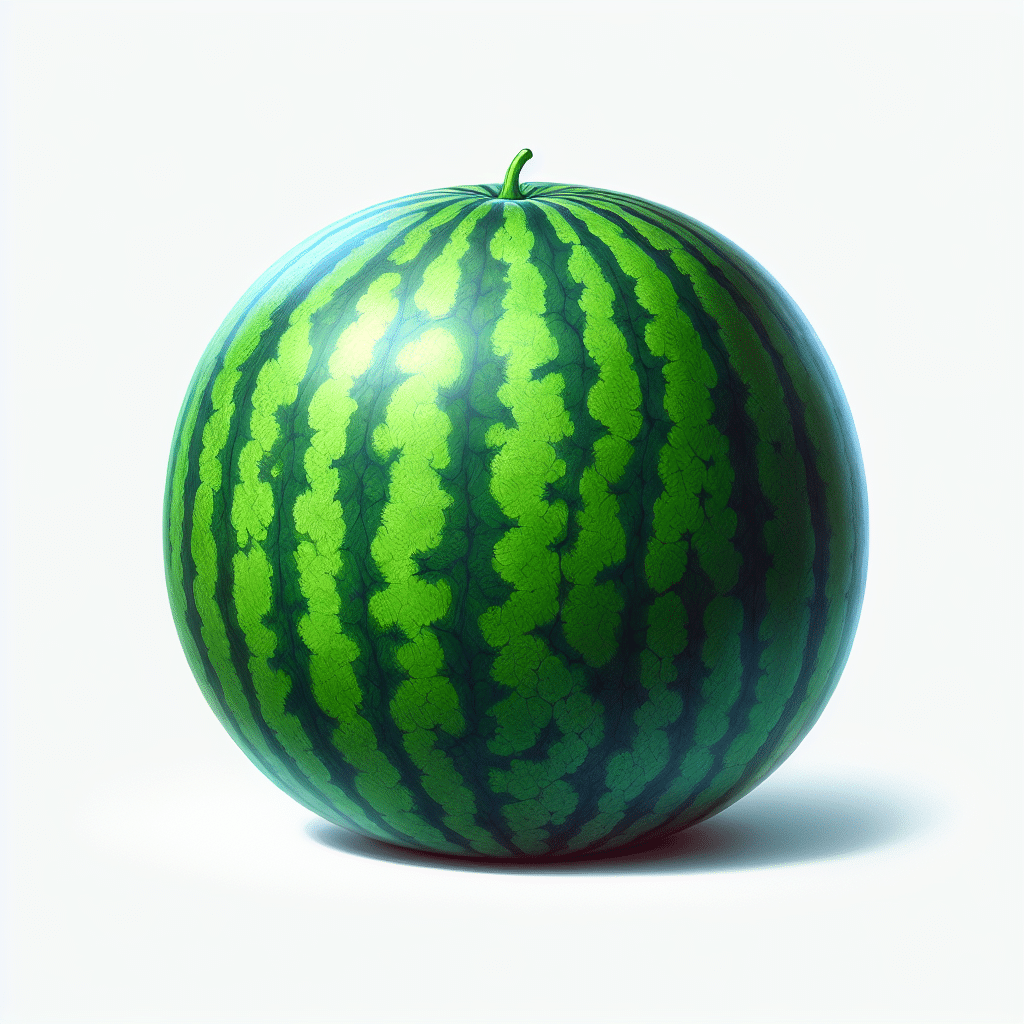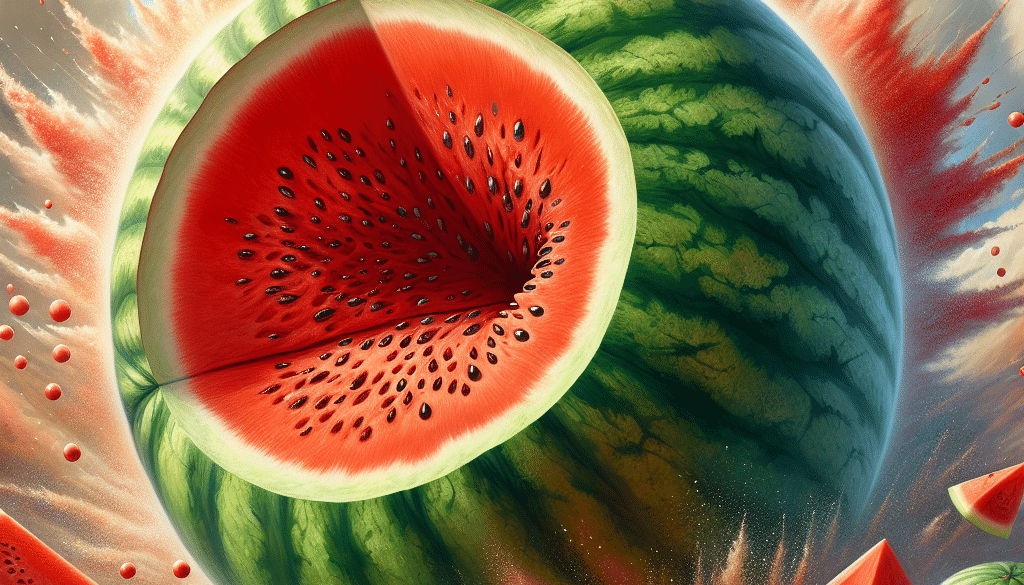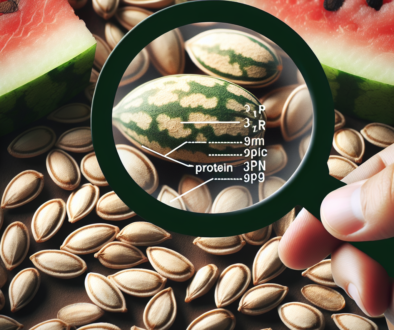Size of Watermelon: Big Joy, Big Flavor
-
Table of Contents
- Watermelon Wonders: Big Size Equals Big Flavor and Joy
- The Science Behind Watermelon Size
- Big Size, Big Flavor: The Connection
- Nutritional Benefits of Watermelon
- Case Studies: Giant Watermelons in the Spotlight
- Challenges in Growing Large Watermelons
- Environmental Impact and Sustainability
- Conclusion: Embracing the Giant Watermelon
- Discover the Power of Plant-Based Proteins with ETprotein
Watermelon Wonders: Big Size Equals Big Flavor and Joy

Watermelons are not just a summer staple; they are a symbol of joy and refreshment. The size of a watermelon can often be a topic of fascination and delight, with larger fruits promising more of that sweet, juicy flavor we all crave on a hot day. But what is it about the size of watermelons that captures our imagination, and what does it mean for flavor, nutrition, and agricultural practices? This article delves into the world of these giant fruits, exploring the factors that contribute to their size, the benefits of indulging in a large watermelon, and the agricultural expertise behind growing them.
The Science Behind Watermelon Size
Several factors contribute to the size of watermelons, ranging from genetics to growing conditions. Watermelons (Citrullus lanatus) come in various sizes and shapes, largely due to the variety of seeds planted. Some are bred specifically to yield larger fruits, such as the Carolina Cross, which can grow up to 200 pounds under optimal conditions.
- Genetics: The genetic makeup of the watermelon plays a crucial role in determining its potential size. Hybrid varieties often result in larger fruits due to selective breeding.
- Climate: Warm temperatures and long growing seasons are ideal for watermelon growth. Consistent heat helps the fruit to develop more sugars, contributing to both size and flavor.
- Water and Nutrients: Ample and regular watering, along with a balanced supply of nutrients, particularly nitrogen, phosphorus, and potassium, are essential for the growth of large watermelons.
- Space: Adequate space between plants allows for better air circulation and sunlight exposure, which are critical for the development of the fruit.
Big Size, Big Flavor: The Connection
It’s a common belief that the bigger the watermelon, the better the taste. This is not always the case, as size does not inherently guarantee flavor. However, larger watermelons have more flesh and can potentially store more sugars, making them sweeter if grown under the right conditions. The key to a flavorful watermelon is not just its size but also its maturity and the farming practices employed during its growth.
Nutritional Benefits of Watermelon
Watermelons are not only delicious but also packed with nutrients. They are low in calories and rich in vitamins A and C, which are important for skin and immune health. Watermelons also contain a high water content, making them perfect for hydration. Additionally, they are a good source of antioxidants, such as lycopene, which has been linked to heart health and cancer prevention.
Case Studies: Giant Watermelons in the Spotlight
Throughout the years, there have been numerous cases of giant watermelons stealing the show at fairs and competitions. For instance, the world record for the heaviest watermelon was set by Chris Kent of Sevierville, Tennessee, in 2013, with a fruit weighing 350.5 pounds. These cases highlight the remarkable potential of watermelon growth and the dedication of growers who often use specialized techniques to achieve such impressive sizes.
Challenges in Growing Large Watermelons
While the prospect of growing a giant watermelon is exciting, it comes with its own set of challenges:
- Pest and Disease Management: Larger watermelons can be more susceptible to pests and diseases, requiring careful management and prevention strategies.
- Physical Support: Due to their size, large watermelons may need additional support to prevent them from resting directly on the ground, where they could rot or be attacked by insects.
- Resource Intensity: Growing larger fruits typically requires more water, nutrients, and space, which can be resource-intensive and not always environmentally sustainable.
Environmental Impact and Sustainability
The cultivation of large watermelons can have significant environmental implications. The use of water and fertilizers must be managed carefully to prevent wastage and runoff that could harm local ecosystems. Moreover, sustainable farming practices, such as using organic fertilizers and integrated pest management, can help mitigate the environmental impact while still allowing for the production of large, flavorful watermelons.
Conclusion: Embracing the Giant Watermelon
In conclusion, the size of a watermelon can indeed bring big joy and big flavor, but it is the result of careful cultivation, the right conditions, and a bit of agricultural magic. While larger watermelons can be more challenging to grow and may have a greater environmental footprint, when managed sustainably, they can be a delightful treat that brings people together. Whether you’re slicing into a giant watermelon at a family picnic or marveling at record-breaking specimens at a fair, these fruits continue to fascinate and satisfy us in equal measure.
Discover the Power of Plant-Based Proteins with ETprotein
If you’re inspired by the natural goodness of watermelons and are looking to incorporate more plant-based nutrition into your diet, ETprotein offers a range of high-quality protein products derived from watermelon seeds and other plant sources. These proteins are not only nutritious but also environmentally friendly, aligning with the values of sustainability and health.
ETprotein’s watermelon seed protein is a standout product that provides a complete amino acid profile, making it an excellent choice for athletes, health enthusiasts, and anyone looking to boost their protein intake with a plant-based option. It’s a perfect complement to a balanced diet, especially for those who appreciate the benefits of large, flavorful watermelons and want to maintain a healthy lifestyle.
About ETprotein:
ETprotein, a reputable watermelon seed protein Chinese factory manufacturer and supplier, is renowned for producing, stocking, exporting, and delivering the highest quality organic bulk vegan protein and plant proteins. They include Organic rice protein, clear rice protein, pea protein, clear pea protein, watermelon seed protein, pumpkin seed protein, sunflower seed protein, mung bean protein, peanut protein etc. Their offerings, characterized by a neutral taste, non-GMO, allergen-free attributes, cater to a diverse range of industries. They serve nutraceutical, pharmaceutical, cosmeceutical, veterinary, as well as food and beverage finished product distributors, traders, and manufacturers across Europe, USA, Canada, Australia, Thailand, Japan, Korea, Brazil, and Chile, among others.
ETprotein specialization includes exporting and delivering tailor-made protein powder and finished nutritional supplements. Their extensive product range covers sectors like Food and Beverage, Sports Nutrition, Weight Management, Dietary Supplements, Health and Wellness Products, and Infant Formula, ensuring comprehensive solutions to meet all your protein needs.
As a trusted company by leading global food and beverage brands and Fortune 500 companies, ETprotein reinforces China’s reputation in the global arena. For more information or to sample their products, please contact them and email sales(at)ETprotein.com today.












